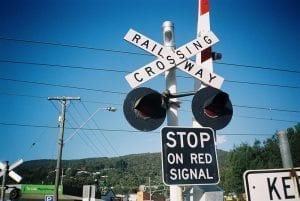The TCA restricts the recovery of punitive damages, reducing the incentive for the T to prioritize safety and potentially leading to a lack of accountability.
The Massachusetts Tort Claims Act (TCA) sets forth provisions that can be confusing and problematic for plaintiffs. As a result of the Act, victims of accidents involving Massachusetts Bay Transportation Authority (MBTA) vehicles often encounter unnecessary difficulties on their paths to compensation.
For instance, the notice requirement established by the TCA can force plaintiffs to feel rushed while simultaneously slowing down and complicating the legal process. Furthermore, the restriction on punitive damages leads to a lack of accountability, allowing the T to ignore serious safety issues and kick the can down the road without fear of repercussions. As a Boston personal injury lawyer, I am concerned that these provisions of the TCA are keeping the T unsafe.
How the Massachusetts Tort Claims Act is Keeping the MBTA Unsafe
Certain provisions of the TCA can make it difficult for victims of such accidents to pursue the damages they are owed. These provisions allow the T to avoid accountability and keep unsafe practices in place.
Issues Created by the Notice Requirement
An essential element of the Massachusetts Tort Claims Act is the notice requirement. When bringing a tort claim against a public employer like the T, it is mandatory to present the claim to the “executive officer,” as defined within the statute. This presentation must occur within two years of the date the accident at issue occurred. Furthermore, it must include specific details about the accident such as the time, place, and circumstances.
First, the presentment requirement can significantly slow down the process of seeking compensation for your injuries because it demands that you provide formal notice of your claim to the MBTA within a strict time frame. The more individuals are slowed down by this requirement, the less liability the MBTA may ultimately face because it can delay and potentially deter victims from pursuing their claims. This can add to the complexities and challenges victims face in the aftermath of accidents involving MBTA vehicles.
Moreover, the strict nature of the notice requirement can cause victims’ claims to be unnecessarily dismissed. The TCA demands that victims’ presentment of notice is precise and in compliance with legal guidelines. If your presentment is not perfect or fails to meet the necessary standards, then your case could face dismissal. This can be a significant concern, as even minor errors or omissions in your notice may result in the dismissal of a potential case.
Issues Created by the Restriction on Punitive Damages
Another important aspect of the TCA is its prohibition on the recovery of punitive damages. When pursuing a claim against the T, the TCA limits the damages you can recover to compensatory damages, which are designed to reimburse you for your losses like medical expenses, lost wages, physical pain, and emotional suffering. On the other hand, punitive damages, which are meant to punish the defendant for particularly egregious behavior, cannot be recovered.
Allowing for the recovery of punitive damages in cases involving the MBTA would serve as a powerful incentive for the agency to take safety seriously. When government entities like the T face the prospect of punitive damages, they are more likely to implement necessary safety measures, conduct thorough investigations, and maintain a higher standard of care to avoid exposing themselves to substantial financial penalties.
The absence of punitive damages may result in a lack of accountability and a reduced motivation for the T to address unsafe conditions and prevent future accidents. Furthermore, the inability to recover punitive damages restricts injured parties from acquiring the full range of payment they rightfully deserve.
Recent Accidents Involving the MBTA
Unfortunately, there is a long history of harmful accidents involving the MBTA. In 2022, the Federal Transit Administration (FTA) decided to investigate specific problems pertaining to the T and establish a timeline of major accidents. These accidents highlight a range of potential safety issues involving T vehicles and their stations.
July 21, 2022
A train traveling southbound on the Orange Line caught fire while over Mystic River. A piece of metal siding on the underside of the vehicle came loose and contacted a rail which carried electricity. Around 200 passengers were evacuated. One passenger even jumped from the train into the river. Fortunately, no injuries were sustained.
Still, this accident demonstrates how a lack of proper vehicle maintenance can lead to catastrophic accidents. The threat of punitive damages could potentially motivate the T to address issues like this.
June 1, 2022
A train carrying approximately 24 passengers collided with another train at Government Center Station. Four train operators had to visit the hospital to tend to their injuries. Such an accident may have been avoided with more effective training and enhanced monitoring of travel routes.
April 10, 2022
Robinson Lalin, a 39-year-old man, had his arm caught between closed doors while on a Red Line train at Broadway Station. He was subsequently dragged to his death. Perhaps certain safety measures could be implanted to prevent a passenger from having their arm stuck in the door? Further, why was the vehicle not stopped in time to avoid causing fatal harm?
January 21, 2022

A woman was killed when her car was hit by a commuter rail train. The accident occurred because the crossing gates meant to keep vehicles off the tracks did not activate in a timely manner. This is another devastating accident that could have been prevented with proper maintenance of important equipment like crossing gates.
September 26, 2021
An ascending escalator at Back Bay station unexpectedly reversed, causing people to trip and pile up. The accident sent nine individuals to the hospital. Again, one has to wonder why the T is not performing consistent maintenance checks to avoid problems like malfunctioning escalators.
September 11, 2021
A professor from Boston University suffered a fatal fall from a rusted, closed-off staircase. The accident occurred near the JFK/UMass station in Dorchester. This accident shows that dangerous conditions at MBTA stations can also produce catastrophic accidents.
June 30, 2021
A train crash occurred on the Green Line near Pleasant Street Station. 27 people were sent to the hospital to address their injuries. For an accident that affects a multitude of victims, the implementation of punitive damages seems especially necessary. The T must be incentivized to prevent such harmful collisions.
Where Do We Go From Here?
The TCA has a significant negative impact on the safety of MBTA vehicles. First, the TCA’s notice requirement can cause delays and potential dismissal of claims if not met precisely, discouraging victims from seeking compensation for their injuries. Additionally, the TCA restricts the recovery of punitive damages, reducing the incentive for the T to prioritize safety and potentially leading to a lack of accountability. This is evidenced by a recent history of harmful accidents.


Join the conversation!